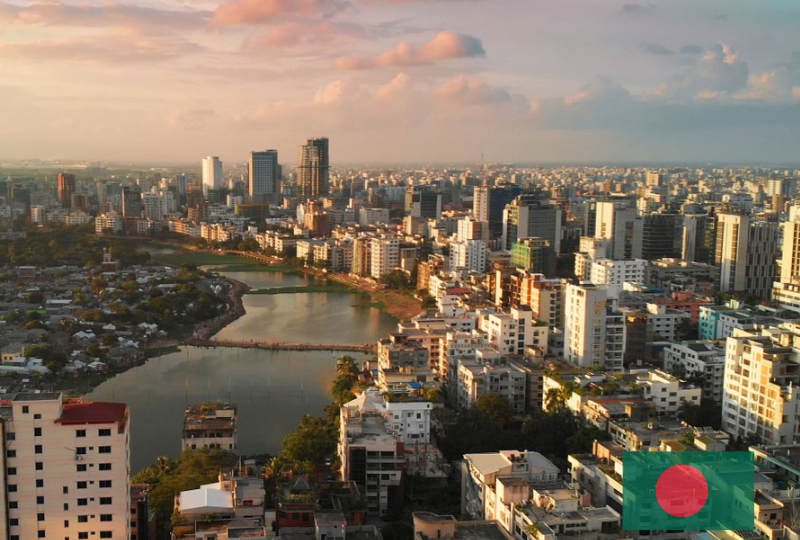
Study in Poland: A Guide for International Students
Do you like diverse nature, cities steeped in history and delicious comfort food after a long exam season? If you answered yes to these three questions, and are looking to study somewhere in Europe – there is a perfect solution for you: Study in Poland!
Poland’s tradition of academic education goes back to 1364 when King Casimir the Great realised how important it was to have a class of educated people. Thus, Krakow Academy, today known as Jagiellonian University, was established. Today, Poland has over 450 HEIs (Higher Education institutions) to choose from and being a member of the Socrates-Erasmus network, Poland has slowly built a reputation for students looking to get an unforgettable study experience and an internationally recognized degree.
There were 72 743 foreign students from 170 countries studying in Poland last year and the numbers grow steadily.

The Higher Education System in Poland
Poland has a long and proud tradition of keeping educational institutions going, at times despite prohibition. Did you know about the Polish Flying University? In the late 1800s, when universities were heavily controlled and only admitted men; Polish scholars began a brave underground movement in which courses were taught in secret. To avoid authorities, these meetings were held in private homes teaching everything from philosophy to arts and science. Additionally, the meetings frequently moved from location to location around Warsaw, earning it the name Floating or Flying University. And the most famous graduate of The Flying University? Marie Skłodowska Curie who went on to win multiple Nobel Prizes for her work.
Higher education examinations are held after the teaching period and are mainly oral exams, meaning you’ll be tested through a one-on-one conversation with your professor. Furthermore, examinations take place over a significantly longer period of 4 to 6 weeks, and students can choose when to schedule their exams within the period. Each examination is offered on several dates, and students can choose when to take their exams. Students are also entitled to turn down a mark and re-take the examination if they are not satisfied with their initial result, which is graded on a 30-point scale. Today, women and men can enjoy education freely and without the need to fly around. Polish universities are divided into private and public ones and offer three degrees: bachelor’s, master’s, and doctorate degrees. For international students, this means you can complete any level of your education in Poland. Both public and private universities follow the objectives and the standards set by the Bologna process. Therefore, degrees earned in Poland are internationally recognized. That should make for a compelling reason to make one of the Polish cities your home while you study!
If a study schedule is high on your list of worries, you will be happy to know that students can attend full-time or part-time programs. Generally, classes at full-time programs (also called ”stationary” studies) are held during the weekdays, with time to catch up on cultural activities over the weekend.
For those who wish to study, part-time classes (or “sessions”) are held on Fridays, Saturdays, and Sundays several times in the semester. You can also attend “evening studies” if you decide to study as a part-time student. In that case, classes are held from Monday to Friday in the afternoons and evenings.
In Poland, the academic year begins October 1 and ends around mid-June, and has two semesters: winter and summer. One semester lasts around 4-5 months. Students need to obtain a passing grade for each class in a given semester – but with good organization and study techniques, this is quite easy!
During the exam period, you have to either pass an exam or get credit on another basis through essays, extracurriculars or similar activities. To advance into the next semester you have to study hard and pass all your classes attended in the previous semester. After graduation and obtaining your diploma, submission of a thesis (bachelor, engineering, master’s) and passing the final exam, you will be granted a professional academic degree. As mentioned before, Poland adheres to the standards of the Bolognia and as such the degree is internationally recognized.
However, the structure of the educational system in Poland differs a bit from that in other European countries, but no need to worry. Here is all the information you need:
Study Cycles
FIRST STUDY CYCLE
After finishing the first-cycle studies (3 to 4 years) you get the professional title of a licencjat or inżynier (Engineer, in the field of engineering, agriculture or economics). This is the Polish equivalent of the Bachelor’s degree. It is the first step in your academic career and it aims to prepare you for future employment or for continued education within a Master’s degree program. The ECTS (European Credit Transfer System) used in Poland is the standard for all universities in the European Higher Education Area (EHEA), which means after you pass a subject, in addition to the grade you get a certain amount of ECTS points.
To obtain a licencjat degree, you must earn 180-240 ECTS credits during your studies.
SECOND-CYCLE STUDIES
A Master’s degree program lasts 1.5 to 2 years and follows the first cycle studies. After graduation, you will gain the professional title of Master (magister, or an equivalent degree depending on the course profile).
This degree focused on theoretical knowledge as well as the application and development of creative skills. After getting your Master’s degree you are free to push forward and enter a doctoral program (third-cycle studies). However, to obtain this degree, you must earn 90-120 ECTS credits.
LONG-CYCLE-STUDIES
In Poland, there are only 11 fields of study that offer long-cycle programs:
1. Acting
2. Art conservation and restoration
3. Canon law
4. Dentistry
5. Law
6. Medical analysis
7. Medicine
8. Production and photography
9. Pharmacy
10. Psychology
11. Veterinary medicine
This Master’s degree program lasts 4.5 to 6 years and leads to the professional title of Master (magister).
To obtain this degree, you must earn 270-360 ECTS credits. This type of studying is based on an integrated study program. This means that should you enroll in a long-cycle study you will study both the basics of your field and in-depth specialization. Completing this degree will provide you with a qualification corresponding to a second-cycle Master’s degree. It is almost like getting your BA and MA degree in one!
THIRD-CYCLE-STUDIES
Otherwise known as doctoral-level programs. This degree normally lasts 3 to 4 years and it is accessible after graduating from a Master’s degree program. Since PhD is a research degree it is offered by universities as well as some research institutions (for example departments of the Polish Academy of Sciences). To get this degree you must submit and successfully defend a doctoral dissertation before a thesis committee and pass a doctoral examination.
Popular Countries
There are some popular countries to study abroad that most of the people select. Such popular countries are

Switzerland
Study in Switzerland: A Guide for International Students Located in the heart of continental Europe,…
Read more
Italy
Study In Italy: A Guide For International Students Europe’s favorite (and only!) boot-shaped nation, Italy…
Read more
Germany
Study in Germany: A Guide for International Students Germany is a country in the heart…
Read more
France
Interested in an Education in France? An education in France offers the chance to savor…
Read more
Cyprus
Study in Cyprus: A Guide for International Students STUDY ABROAD IN Cyprus Does over 300…
Read more